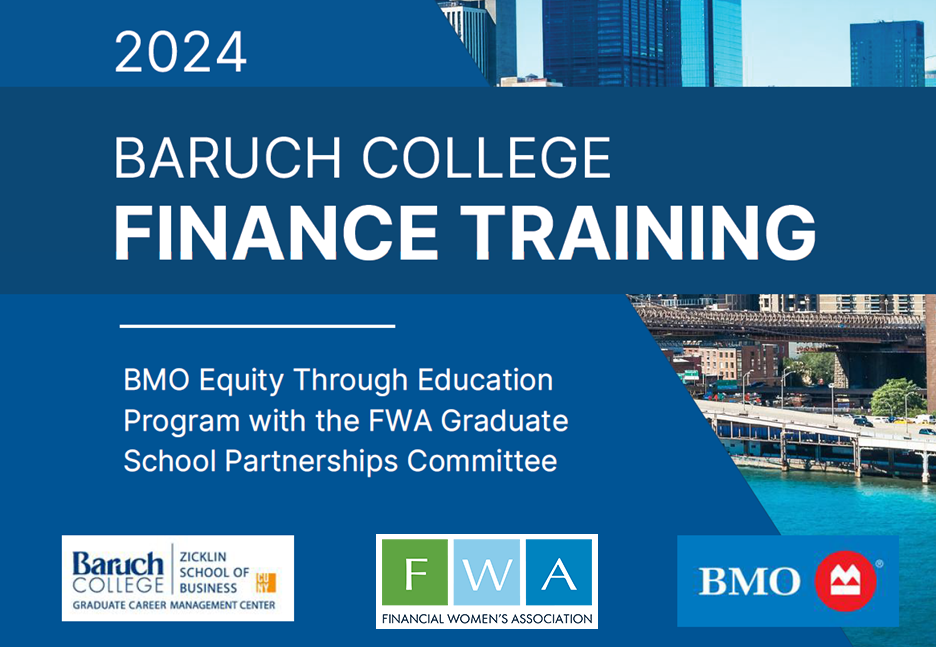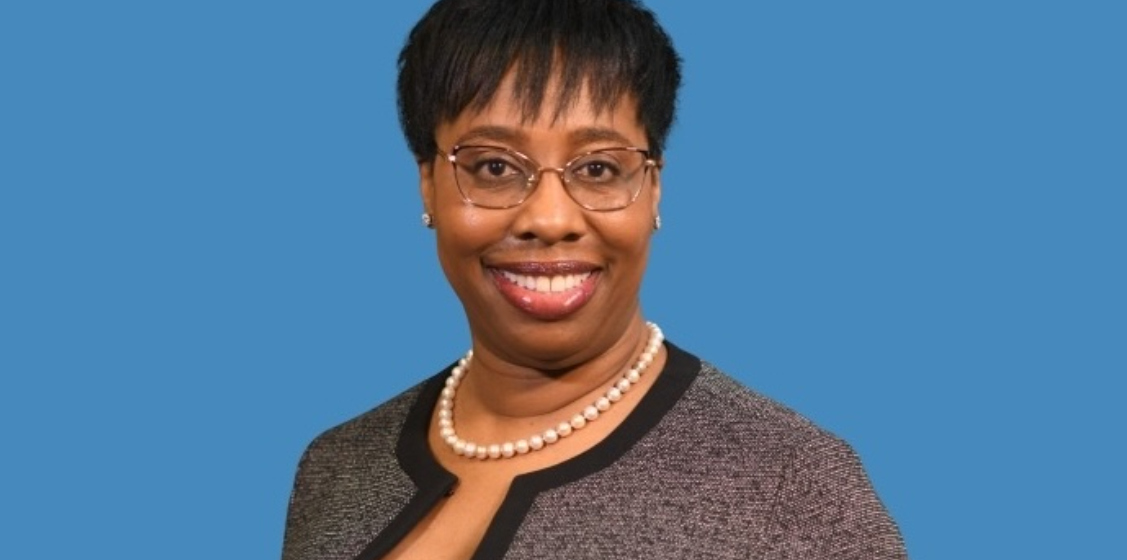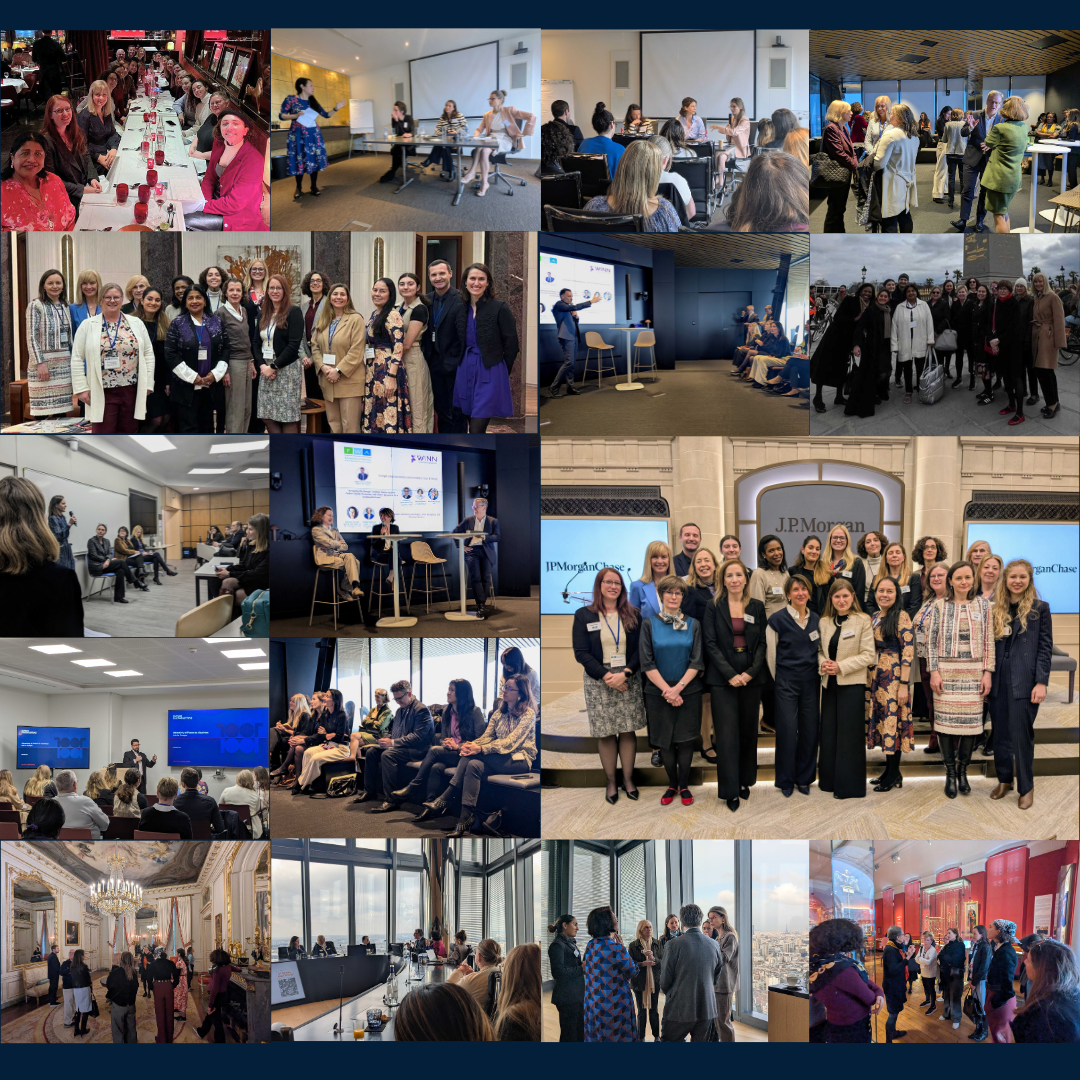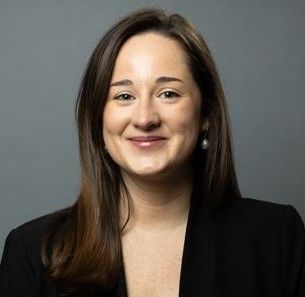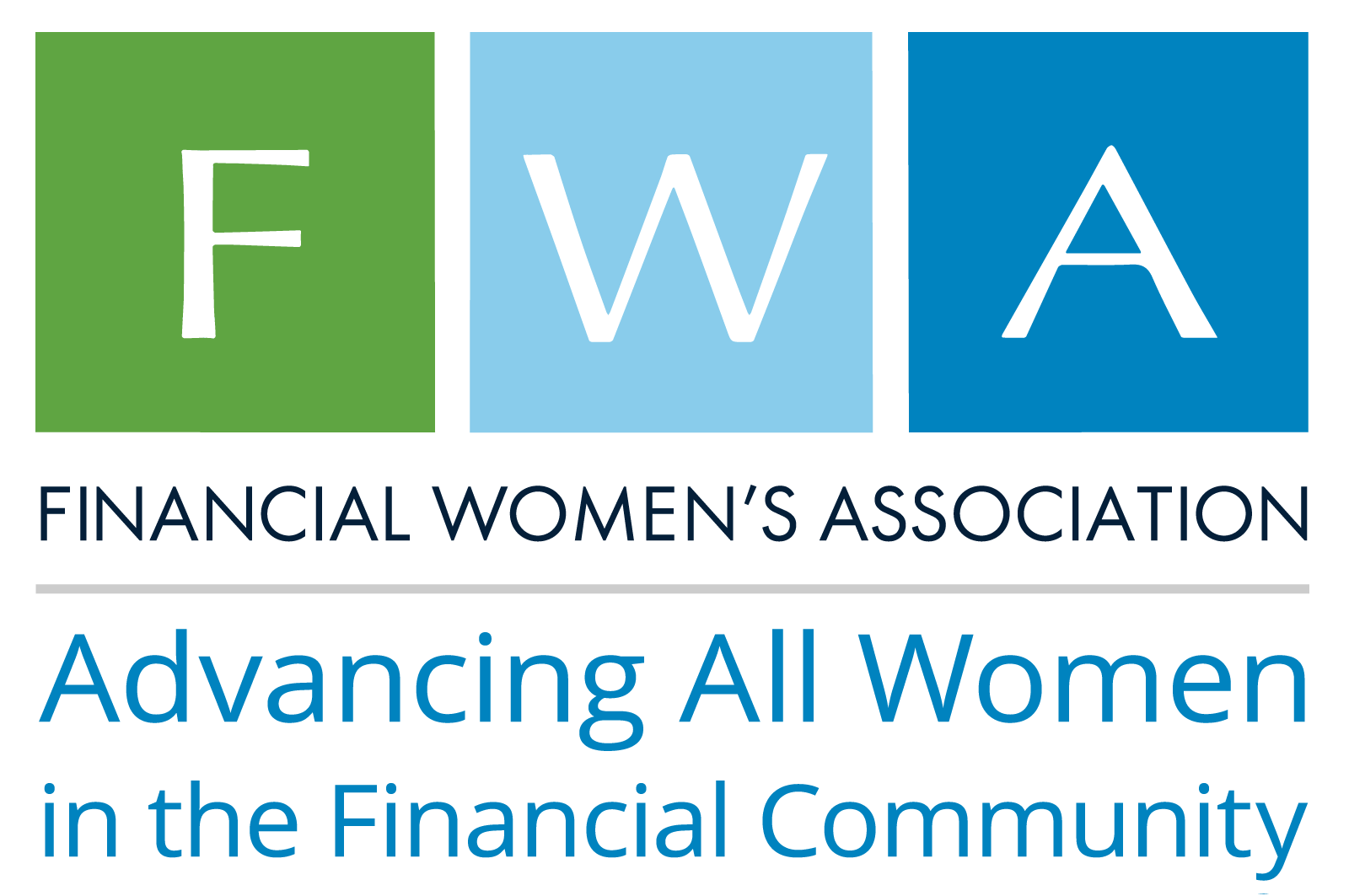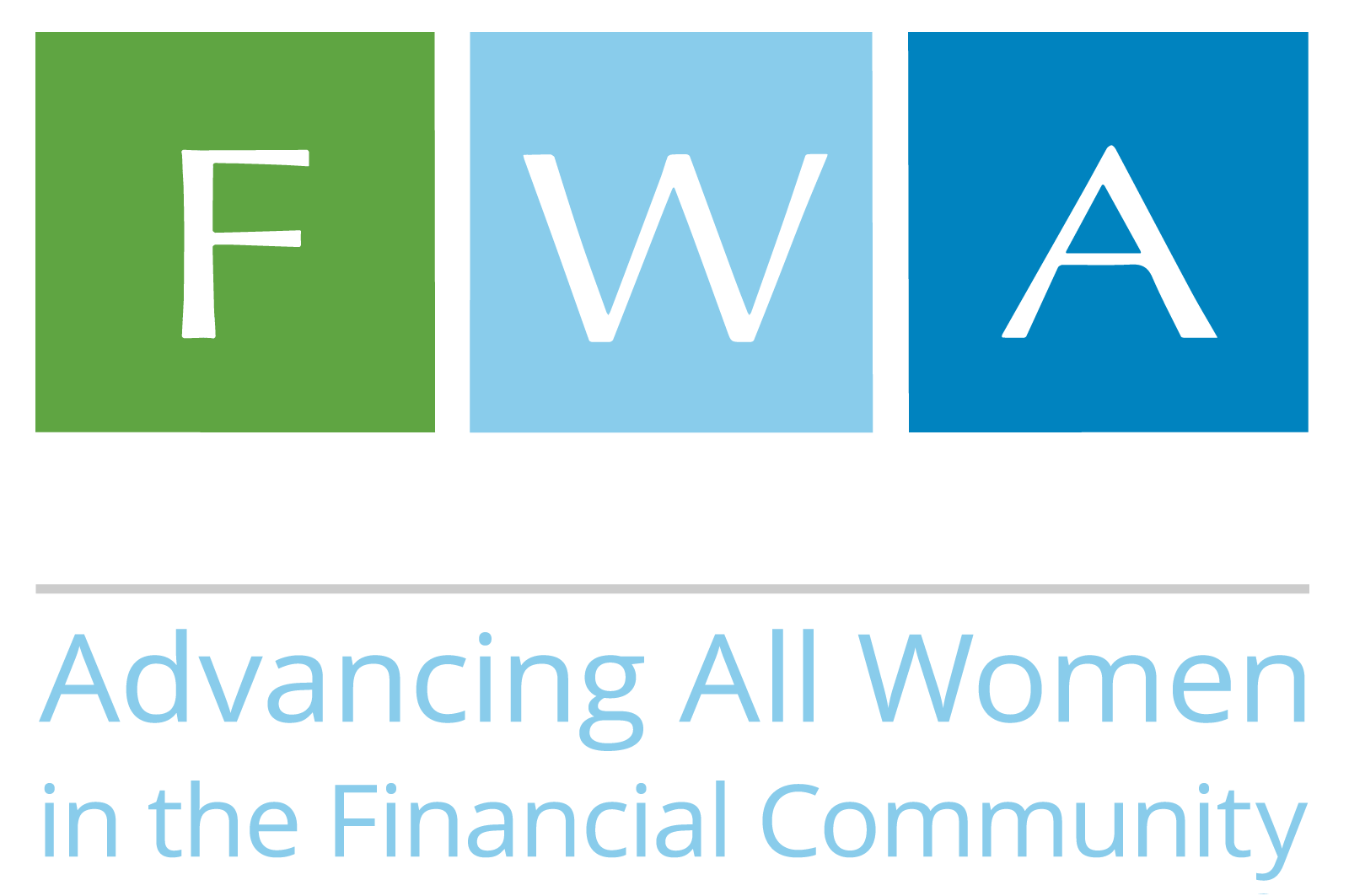Spotlight on Jacqueline (Jackie) Linden, Educational Initiatives Chair
Empowering the next generation of female leaders in finance
Jackie Linden joined the FWA later in her banking career to expand her network, and she served on several committees before joining the board. Currently, she leads Educational Initiatives for the FWA Board.
Sherree DeCovny, co-chair of the FWA’s Marketing & Strategic Communications Committee, talked with Jackie about her 40-year career at Citi and why she finds it rewarding to support the FWA mission and champion women in finance.
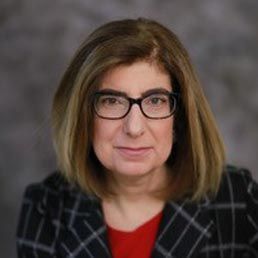
Sherree: Please tell us about your background and professional career.
Jackie: My parents moved to the U.S. from the U.K. when I was five months old, so you could say I’m a first generation American. In addition, my siblings and I were the first in our family to achieve higher education.
I’ve always had a strong quantitative aptitude and been very analytical, which led me to major in economics at Barnard College. After earning my degree, Citibank hired me as a research analyst in the Economics Department, and that was the start of a long career in banking.
I pivoted in my career several times. Early on, I changed my focus from economics to finance because I wanted to apply my skills in a more practical, less theoretical way. This led me to pursue and obtain an MBA in Finance at NYU Stern Graduate School of Business, which I did part-time while working at Citi.
While working on my MBA, I transferred to a financial planning and analysis role in the Financial Control Department at Citibank Corporate Treasury. Subsequently, I moved into a front office role and worked in asset and liability management for Citi credit cards, managing the funding costs of Citibank’s $70 billion card portfolio. I later became the market risk manager for Citibank’s card portfolio, followed by becoming the senior market risk manager for Citigroup Treasury, a $300 billion portfolio.
Most recently, I was director of funding and liquidity risk management at Citigroup, providing firm-wide oversight and risk management for North America, Western Europe and Japan entities with balances totaling $1 trillion. Citi needed to be bailed out during the financial crisis, and I led Risk’s effort to strengthen Citi’s liquidity risk management after the crisis.
Sherree: What was your leadership journey at the FWA?
Jackie: I didn’t have female mentors and role models in my career, so I feel passionate about supporting women in finance. To this end, I joined the FWA about 10 years ago, and I was advised that the best way to get involved in the FWA was to join a committee. The Directorship and Corporate Governance Committee (DCGC) aligned with the risk management work I was doing at Citi, so I volunteered to be the vice chair of that committee and the following year became chair.
After that, I joined the President’s Circle Committee as the relationship manager (RM) for SMBC. Mike Sebring, SMBC’s liaison, moved to Citizens Bank in 2020. The firm joined the FWA that year, and Mike asked me to be his RM. I’ve been the FWA RM for that bank since then.
After a stint as co-chair of DCGC, I was chair of the Business and Government Affairs Committee. That committee became the Programming Committee, and I’ve co-chaired it since 2020.
I also served on the Nominating Committee for two years and chaired it as a board member in my third year followed by serving on the Operations Resource Committee.
Sherree: What skills and expertise do you need to be an FWA board member?
Jackie: I’m now in my third year as a board member. At this level, you need to demonstrate a genuine commitment to the FWA’s mission, attend meetings regularly, come prepared and actively participate in discussions and decision making. You need to contribute your expertise and connections, be willing to fundraise, provide financial support when possible, and show up for events as an FWA ambassador.
In addition, you need excellent communication abilities, financial literacy, strategic thinking, ethical behavior and the ability to build relationships. Importantly, you must be open to diverse points of view and willing to learn and stay updated on industry developments.
Sherree: How have you benefitted from your FWA experience?
Jackie: Serving as co-chair of the Programming Committee has helped me stay engaged in finance and keep abreast of hot topics in the industry by providing impactful and relevant programs for our members with distinguished speakers. It was particularly rewarding for me to lead a fireside chat with former Citigroup Chief Administrative Officer Karen Peetz.
I’ve had an opportunity to give back by developing and supporting future FWA leaders through my work on the Nominating Committee and the next generation of financial leaders as the chair of Educational Initiatives for the FWA Board. For several years, I’ve been a mentor for the FWA High School of Economics and Finance (HSEF) and Baruch College mentoring programs. In addition to those mentoring programs, I also oversee our mentoring program at Seton Hall University as well as our Wall Street Exchange and Financial Literacy programs. It’s been extremely rewarding to support the next generation of female leaders in finance.
Since leaving Citi, I’m also interested in leveraging the knowledge and skills I’ve acquired through my long career to pursue consulting opportunities and positions on other boards.
Sherree: How has the FWA changed, and how would you like to see the organization evolve in the future?
Jackie: During Covid, the FWA had to move to virtual programming and keep our members engaged while remaining relevant and addressing real challenges facing our membership and our own solvency issues. In the last year or two, we’ve moved to more in-person programming and have placed greater emphasis on technology and its reshaping of the financial landscape.
The board recently held a retreat to discuss strategy, resulting in specific initiatives to improve programming content and process; augment membership and engagement; and enhance mission and leadership culture. We’ve also discussed a potential geographic expansion.
Sherree: What would you still like to do at the FWA?
Jackie: This is my first year chairing the FWA Educational Initiatives for the FWA board. We’ve made a lot of progress this past year, especially with re-energizing the HSEF mentoring program, which became dormant during Covid. This past year, we’ve received additional funding for this program and plan to grow the HSEF mentoring program from a single grade of seven mentees to 20 mentees spanning three grades. We’ve introduced new workshops at HSEF and have more planned. We’re also brainstorming ways to increase funding for all our mentoring programs and collaboration among them.
Sherree: What career advice do you have for our current and prospective members?
Jackie: It’s so important to build your network and find sponsors. As an FWA member, join committees and take on leadership roles. Be confident in your abilities, and don’t be afraid to take risks in your career. Apply for roles you are interested in, even if you’re not 100 percent qualified.
The FWA provides members with access to a large external network and an opportunity to be mentored through the Mentor2Mentor Program. It also provides members with many leadership opportunities to stretch and expand your skills. The FWA has a great mission, and it’s worth devoting your time and energy to advance women in finance.
